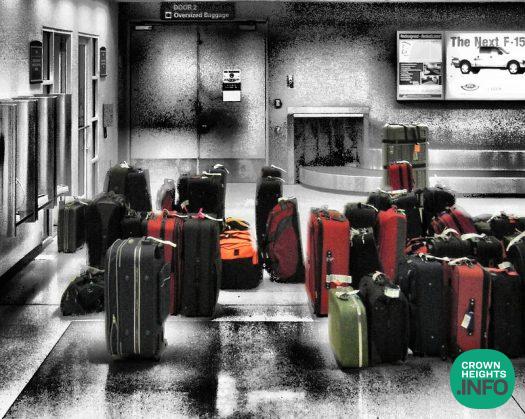
Should My Son Learn Away From Home?
Question: My husband and I live in a small and cozy Chabad community. There is a local — albeit small — Mesivta for my son to attend. He really would like to go out of town to a larger and more-established yeshivah. Although he is really pushing us, we would really like him to stay local. What is the advice that the Rebbe gave to parents in this or similar situations?
Answer: Thank you for giving me the opportunity to share some letters of the Rebbe that deal with this timely question as parents are considering their options for the upcoming school year.
Each circumstance is different, yet there are general approaches that the Rebbe shared:
(1) When a boy want to leave home to grow in his Yiddishkeit:
“In continuation to the discussion that we had in person in regards to the place where your children should learn (the son wanted to go away to a certain Yeshiva): I did not answer in the middle of the school year and for a few reasons. I did not want to write against the ruling of the Shulchan Aruch (that a boy should learn where he desires) and I did not want to escalate the tension in the home, as I was hoping that things would settle on their own.
“Now that it is the time to think about the registration of the upcoming year, I will allow myself to express my hope that you will allow your son to learn in the place that he truly desires and has wanted to go for quite some time. It is important that it should be with your complete agreement.
“I would like to point out that your son has had this desire for a while and it is not just a passing fad. Thus, if he is forced otherwise, it can have detrimental effects on his daily life. It could add in anxiety and strain in his relationships and also cause a lack of diligence in his learning. It can also cause him to have a negative outlook on the institution that he is forced to learn in and many more negative outcomes.
“It is obvious that parents who Hashem has blessed them with such talented and spiritually-sensitive children, will do all in their ability to do the proper thing with joy. This is truly the best thing for their children both in the physical and spiritual realms.” (Igros, Vol. 22 p. 478; #8651)
(2) When the home is lacking in Yiras Shomayim
“In response to your letter in which you write about the thirteen-and-a -half-year-old who is experiencing issues (at home) affecting his Yiras Shomayim:
“In these cases, the best thing is to fulfill the directive of the Mishna (in Pirkei Avos) to “exile yourself to a place of Torah.” When that will happen, there will no longer be confrontations and tension between the two sides, except the initial challenge to get them to agree to send him. We have seen the benefit of the above course of action and the American youth have come to appreciate this idea of going away from home for a while. I am sure that you can find people who can have a positive influence on the parents of this boy.” (Igros, Vol. 13 p. 28; #4300)
(3) When the child is having behavioral issues at the current school
In 5716 (1956), Rabbi Shlomo Chaim Kesselman wanted to send two bochurim to 770 as they were not behaving in their Yeshiva in Eretz Yisroel. The Rebbe responded:
“It is self-understood that this is not the way to educate students, [i.e.,] that when there are issues they are sent overseas (away from their families which have the ability to have some type of positive influence on them). I am sure that you know that there are issues in America as well… You should explain to the hanhalla that the objective is not to send away the weaker/more difficult students, rather they need to figure out how to properly educate them in their own place.” (Igros, Vol. 21 p. 351; #8107)












Shlomie
Hard no. Going away so young is almost child abuse.
AH
Really, now? So the chassidim in Russia who sent their kids to underground yeshivos out of town were “almost child abusers”? Even nowadays, there are any number of cases where a teenager will do better being out of town for a period of time. Each child and their situation is unique.
Shlomie
Russia is so not a proof for anything. That was a terrible era. RL!
AH
Then don’t make blanket statements. You also haven’t st all addressed the second half of my comment.